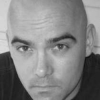Philipp Meyer

Philipp Meyer
Philipp Meyeris an American fiction writer, and is the author of the novels American Rust and The Son, as well as short stories published in McSweeney’s Quarterly, The Iowa Review, and Esquire UK. Meyer is the recipient of a 2010 Guggenheim Fellowship. He grew up in Hampden, a blue-collar Baltimore, Maryland, neighborhood often featured in the films of John Waters. His mother is an artist; his father is an electrician turned college biology instructor. Meyer considers his major literary influences...
NationalityAmerican
ProfessionWriter
CountryUnited States of America
Life throws up enough road blocks to keep you from writing; you can't be adding to them yourself by saying you can only write in one specific place. I'm in New York half the time and Texas half the time, and I work wherever - in my computer bag I have some foam ear plugs that I can put in.
My first published novel, 'American Rust,' took three and a half years of full-time work to write. But I wrote two apprentice novels before that.
After I finished college, I got a job on Wall Street as a derivatives trader, but after a couple years of it, I was calling in sick in order to work on my novel.
You don't make a decision about being a writer. There was a point, aged 21, when it became clear that this is who I am. The choice is how good you are going to be at it and how hard you are going to work.
If you're always thinking about someone else's work, about the tradition you're working in, how can you possibly make anything good?
When you take the fact that you're loved for granted, it frees your mind to go after every other thing there is.
My ideal is to write most of the day, then go running, find friends and socialise all evening; my mind recharges with human contact.
My parents have always been incredibly supportive. Even when I dropped out of high school, they said, 'We trust you, we believe in you.'
I thought that I would have a huge literary novel coming out when I was, like, 29. I quit my banking job, and I was halfway through my second novel - and I will never publish it, because it's very mediocre.
I'm interested in getting deep into a person's consciousness and doing so in ways in which the narrator is secondary to the character's own thoughts.
I try to begin writing as close to a dreamlike state as I can get.
Cornell changed my life; getting in there was one of my pinnacle moments.
When you hold things back, when you don't commit completely to your ideas and trust completely in your own instincts, you are guaranteeing your own failure - even if you end up having commercial success.
When people grow up in atmospheres of violence or atmospheres of poverty, they don't normally use hi-falutin' language to describe those things. They would describe some brutal event the same way we would describe getting a taxi or missing the bus.